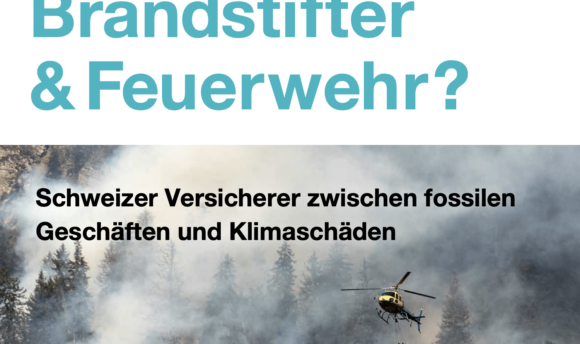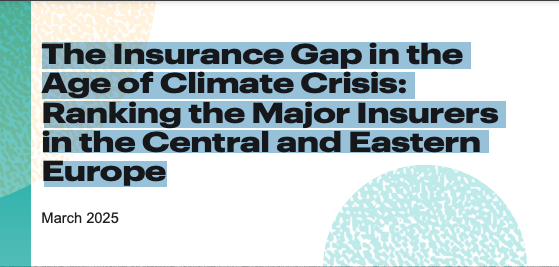Disclaimer:
Beazley indicated to Reclaim Finance a few hours before the release of the report to have decided to align with Lloyd’s policy and no longer underwrite new coal mines and plants as well as new tar sands, or arctic energy exploration projects, or companies which generated more than 5% revenues from these activities.
This information, which can be found on Beazley’s TCFD report recently updated in March 2023, was indicated to Reclaim Finance as the first response to a series of emails sent to them from January 2023 to the day before the release of the report.
We acknowledge and welcome Beazley’s commitment while we call on the managing agent to integrate these commitment into a formal sector policy. We also call Beazley to adopt further measures to align with best practices, as defined by Munich Re and Argenta managing agents and with the IEA NZE’s projections regarding the end of new oil and gas fields and new LNG terminals 1.5°C.
The report The Good, The Bad and The Ugly, The Fossil Fuel policies of Lloyd’s Managing Agents is being updated to take into account Beazley’s recent commitments and will be available soon.
Updated on 06.04.2023 following Beazley’s announcements
Lloyd’s of London (Lloyd’s), the world’s largest insurance market, is failing to meet the litmus test for climate responsibility of stopping fossil fuel expansion, according to new analysis by Reclaim Finance of Lloyd’s top managing agents. Despite its net zero pledge, Lloyd’s has no policy in place to end fossil fuel expansion and has failed to impose its very limited policy on its managing agents. Reclaim Finance, a member of the Insure our Future network [1], is urging Lloyd’s of London to act on its net zero commitments and strengthen its measures, including additional sanction mechanisms to encourage its managing agents to act.
Lloyd’s fossil fuel policy has so far only focused on coal and some unconventional oil and gas projects, which is inconsistent with the net-zero pledge it has made as a member of the Net Zero Insurance Alliance (NZIA) [2]. To reach a net zero goal by 2050 following a 1.5°C pathway, the International Energy Agency (IEA) has projected the end of the development of new fossil fuel production projects beyond those approved in 2021.
Lloyd’s, which operates through its managing agents, does not make access to its market conditional on the adoption of policies that exclude insuring coal expansion and it has yet to require any measures to address conventional oil and gas expansion.
Reclaim Finance’s analysis of Lloyd’s top 20 managing agents [3], who represent over 80% of the Lloyd’s market annual gross written premium, found that:
- Six have not publicly adopted any measures at all on fossil fuels including RiverStone Managing Agency and Chaucer Syndicates [4].
- Eight have not publicly adopted measures to comply with Lloyd’s recommendations that its managing agents no longer insure new mines and coal plants (from January 2021).
- Nine have not publicly adopted measures to comply with Lloyd’s recommendations not to insure new tar sands and Arctic oil and gas exploration activities (from January 2021) including Liberty Managing Agency and MS Amlin.
- Eleven of Lloyd’s top 20 managing agents have adopted Lloyd’s current recommendations on not insuring new coal, tar sand and Arctic energy projects.
"Despite recent extreme weather events which cost the Lloyd’s market billions, the world's largest insurance market appears to be unconcerned by the consequences of the climate crisis. These results show that Lloyd’s has done nothing to turn its net zero commitment into a reality. Lloyd’s fine words must be turned into actions that drive change throughout its market. This is the only way in which it can deliver on its net zero commitments.”
On the contrary, two managing agents, Munich Re Syndicate and Argenta Syndicate have gone significantly further and committed to stop insuring new oil and gas fields [5]. This proves that it is possible for any managing agents to take their responsibilities and adopt the measures that are required on fossil fuel expansion to meet their net zero pledges.
Lloyd’s of London, which in 2018 represented 40% of the global insurance premiums linked to the energy sector, is one of the remaining members of the NZIA still willing to underwrite the expansion of coal, oil and gas. Its inadequate policy is in stark contrast to the best practices of many of its NZIA peers who have committed not to insure new coal or new oil and gas projects [6].
“Lloyd’s is not taking climate science seriously, it is undermining the climate action of its peers and Lloyd’s climate pronouncements, which it presumably made to attract investors, are laid bare by its managing agents' lack of action. Lloyd’s greenwashing will not help solve the climate crisis, worse, it is driving its industry into the wall by fueling more losses due to more severe climate risks.”
According to the latest IPCC findings [7], postponing the implementation of mitigation and adaptation measures will result in an increase in losses and damages due to increased climate risks. In 2022, the Lloyd’s market made £800 million in net losses , which is £3 billion less than in 2021, in part due to the increasing intensity of climate catastrophes such as Hurricane Ian [8].
Reclaim Finance calls on Lloyd’s to set and monitor the adoption of a clear framework for its managing agents that immediately requires Lloyd’s managing agents to align their practices with its current and future policy on fossil fuels within a year after adoption by Lloyd’s, and set enforcement mechanisms and sanctions if they do not comply after the one-year deadline.
Notes:
[1] Insure Our Future is an international campaign calling on insurance companies to exit coal, oil and gas in line with a pathway limiting global warming to 1.5°C.
[2] Lloyd’s of London is a member of the Net Zero Insurance Alliance and issued guidelines to managing agents in 2020 asking them to implement restrictions on coal and certain non-conventional oil and gas sectors from 202 onwards.
[3] The report was supplemented by a desk research summarized in the Coal Policy Tool and the Oil & Gas Policy Tracker.
[4] Beazley Furlonge, RiverStone Managing Agency, Chaucer Syndicates, RenaissanceRe Syndicate Management, Ascot Underwriting, Aegis Managing Agency, Atrium Underwriters.
[5] Munich Re Syndicate et Argenta Syndicate apply the fossil fuel policies of their parent companies, respectively Munich Re et Hannover Re.
[6] Allianz and Munich Re have both committed to stop covering new oil and gas fields as well as new midstream oil projects (e.g. pipelines) and oil-fired power plants by 2022.
[7] IPCC, Synthesis Report Of The Ipcc Sixth Assessment Report (AR6) – Summary for policymakers, 2023
[8] Lloyd’s of London made a net profit of £2.3 billion in 2021 against a net loss of £800 million in 2022. According to Lloyd’s of London, Hurricane Ian alone cost it around £2 billion in 2022



